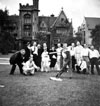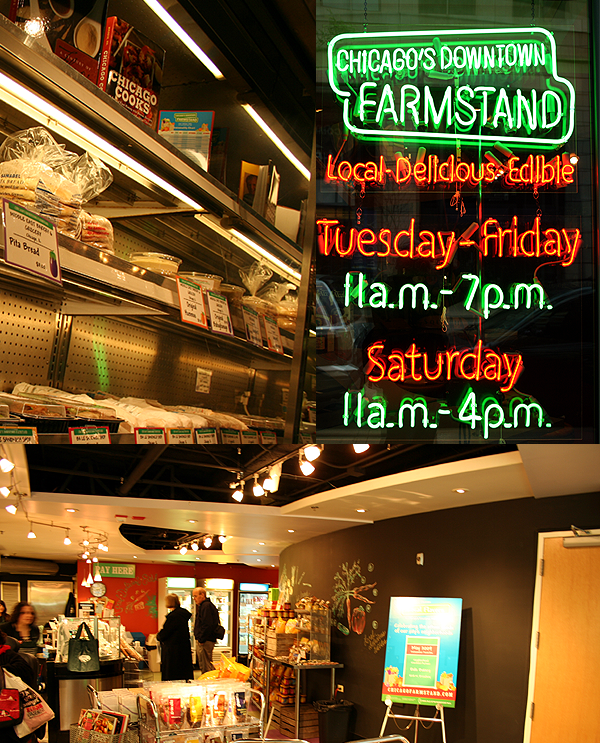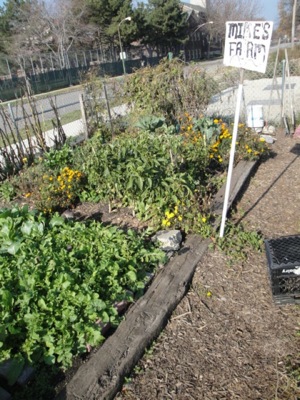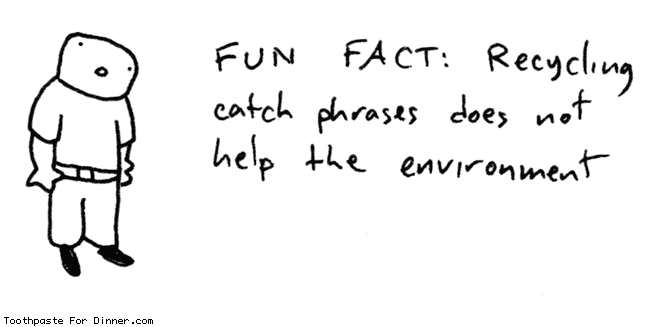Recently in Green Category
by Sydney Paul, Class of '12
 Spring
2012 is already shaping up to be a busy time in the city with events like the
NATO Summit in May. We here at Chicago Studies plan to help
students make the most of it. We have the pedal to the metal with
collaborations with a variety of faculty, the Sustainability Office, ORCSA,
OMSA, the Creative Writing Program, the Human Rights Program, the Logan
Center, the Film Studies Center, and more.
Spring
2012 is already shaping up to be a busy time in the city with events like the
NATO Summit in May. We here at Chicago Studies plan to help
students make the most of it. We have the pedal to the metal with
collaborations with a variety of faculty, the Sustainability Office, ORCSA,
OMSA, the Creative Writing Program, the Human Rights Program, the Logan
Center, the Film Studies Center, and more. Here is a wrap-up of exciting events Chicago Studies has planned for Spring 2012:
NATO: Where It Came From and Where It's Going
(April 19th) - 6:30pm Stuart Hall 101
 Join
us for a discussion with Professor John Mearsheimer, who is the R.
Wendell Harrison Distinguished Service Professor of Political Science and
the co-director of the Program on International Security Policy at the
University of Chicago, as lectures on NATO's history and its relevance to
the U.S. and the world going forward. Co-sponsored by the Human
Rights Program.
Join
us for a discussion with Professor John Mearsheimer, who is the R.
Wendell Harrison Distinguished Service Professor of Political Science and
the co-director of the Program on International Security Policy at the
University of Chicago, as lectures on NATO's history and its relevance to
the U.S. and the world going forward. Co-sponsored by the Human
Rights Program. by Lynda Lopez, News and Public Affairs Intern, published in the University Community Service Center Newsletter
In the past few years, college campuses across America have made it a priority to protect the environment by implementing "greener" programs on campus. One place where students are forcing green changes is the dining hall. According to the Sustainable Endowments Institute's 2007 report card, which looks at environmental initiatives at the 200 colleges and universities with largest endowments assets in the U.S. and Canada, 70 percent of these schools now devote at least a portion of food budgets to buying from local farms and/or producers.
Another area where college campuses are leading the way is in water conservation. According to Niles Barnes of the Association for the Advancement of Sustainability in Higher Education (AASHE), most of the 3,800 institutions of higher education in the U.S. have engaged in some sort of water-saving program.
The University of Chicago is one of the colleges moving forward with green innovation. In 2008, the Office of Sustainability was opened on campus in order to encourage greener programs on campus. One of the first major initiatives by of the newly formed office was the Recycles Program. The free campus bike share program launched in the fall of 2009 and grew to nearly 1,000 users within its first years. Students, faculty, and staff have found it an efficient and easy way to navigate the campus. In May 2010, the University of Chicago held its first e-wasting recycling event which netted 23,000 pounds of materials for recycling. Hundreds of community members and University staff, faculty, and students dropped of their unwanted items for recycling at different drop off sites on campus.
In addition to the amount of work the university itself has been putting into making the campus a "greener" place, student activists have been looking to improve the environment in the city as a whole. The Southside Solidarity Network and Students for a Just and Stable Future (part of the Green Campus Initiative) are some of the UChicago student groups making clean air in the city a main priority.
This year, the groups are rallying in support of the Chicago Clean Power Ordinance, a piece of legislation that would help clean up or shut down two coal power plants in Chicago. According to the Little Village Environmental Justice Organization, the coal power plants cause 41 premature deaths per year, 2,800 asthma attacks, and close to 600 emergency room visits (related to asthma).
On October 10, 2010, 20 UChicago students attended the Chicago Clean Power Coalition Rally in Pilsen. Caroline Wooten, a third year in the College and member of the Southside Solidarity Network, thinks that the event was a huge stepping stone to reaching the group's goals. "While the rally was powerful in and of itself, individuals were also given the opportunity to contact city government directly," she said. "Participants signed a petition, made calls to their aldermen, sent postcards to Mayor Daley, and contributed to a public art project."
The rally had about 100 people attend, so UChicago constituted a fifth of the participants. "This turnout definitely showed that students are an important part of the climate movement, and we need to continue to strengthen this movement through participation and leadership," said Wooten.
In addition to the rally in October, Students for a Just and Stable Future teamed up with Students for a Democratic Society on November 1st for a Day of the Dead Rally in Pilsen. This rally pushed for the Chicago Clean Power Ordinance and was organized by local environmental groups in Little Village and Pilsen.
Wooten says that she hopes to continue to phone bank and canvas for the Chicago Clean Power Ordinance, along with other UChicago students. She feels optimistic that the efforts can make a difference. "I think a lot of students care about the environment, and are specifically concerned about climate change."
It's hard to keep an ear to the ground when it's so darn cold out, so I'm trying out a new feature: a regular re-cap of interesting news items of city-wide, local and campus importance.
City news—Is it warm out here? Chicago weather will hit above-freezing this week for the first time since Christmas Day's unseasonable 43 degrees. Not exactly reason to break out a tank top, but maybe now my hands won't turn into icicles every time I fumble to retrieve my CTA card from inside my wallet.
South Side news—3 months after Chicago lost the Olympic bid, and still no word from the city on what will take the place of the Olympic Village in its massive reconstruction project at Michael Reese Hospital. I wrote this story for the Chicago News Coop last week, and my fingers really did turn into icicles when I attempted some man-on-the-street reporting up in Bronzeville.
Campus news—52nd Street has a new bakery, the Chicago Weekly reports. Sounds like a yummy way to keep warm (Note to self: don't write a blog post right after running across the snow-capped quadrangle to get to work.)
The Sustainability Council is sponsoring a free Winter Gardening Workshop on Tuesday in Swift Hall:
Julia Govis (Master Gardener/International Organic Farm Inspector) will demonstrate and explain ways in which you can grow your own organic meals indoors this winter. There will be a Q & A session after the demonstration and materials will be available to take away to try the techniques presented during the workshop at home.

(photo from Chicago Now's Garden Blog)
In honor of the last day of Losing the Farm, an excellent history class on the globalization of food production in the 20th century, I biked up north to the Urban Farm Stand for some locally-grown goodies. Though most of the neighborhood farmers markets left Chicago along with October's Halloween decorations, Chicago's Downtown Farm Stand is open year round to satisfy those cravings for organic Tomato Mountain sauce and brussel sprouts (don't tell me I'm the only one who has them!).
Located just south of the Randolph Street Metra stop, this non-profit has been providing commuters to and from the Loop with vegetables and baked goods produced no more than 280 miles from the city since it opened in the fall of 2008.
And speaking of newly-purchased brussel sprouts in tomato sauce...
(I ate these at my desk while reviewing Phy-Sci lectures)
Let me know if you find any more seasonal surprises around town... perhaps at the Christkindlemarket?
But note: The Farm Stand will close for an annual winter break on Wednesday, December 23, 2009, and will reopen on Monday, January 11, 2010.
Story and Photos by Kat Li
Picture #1: All Are Welcome.
Just a couple of blocks east of the new South Campus dorms rests a beautiful community of growth and sharing. The community centers around the 61st St Community Garden, a green anomaly in the wasted, industrial expanse of the south side of Chicago. The garden hosts over 100 families in Hyde Park and Woodlawn; faculty from the university and long-time residents of the neighborhoods bring their families and friends together to this free, open space.

Picture #2: All of the residents will have to uproot their plots and personal ties to the garden very soon due to the university's plan to use the area as a staging site for construction vehicles.
Every Saturday, a farmer's market is held in the streets, allowing local businesses and gardeners to meet and exchange. As the days get colder, the market is moved into the Experimental Station, a building that serves as a venue and a kitchen for gardeners, community members, and whoever would like to rent out the space. Connected to the Experimental Station is Blackstone Bicycle Works, an after-school program for kids in the neighborhood that incorporates them into the business of bicycle-recycling and -repairing. All of the bikes from the university's new "ReCycles" rental program were made at Blackstone, and my own old-fashioned but perfectly functioning bike was a bargain at $65.
Earlier this afternoon, my friend and I walked over to the Backstory Cafe, where we enjoyed a buffet brunch of fresh food and a live jazz duo. Berry scones, spinach and pecan salad, candied pears with cottage cheese, buttery croissants, and apple cake were only some of the options on the table.
The community is a beautiful fact of life for the residents of Hyde Park and Woodlawn, as well as for the students and for the faculty of the university. But every time that I walk through the garden, meet a friend for a meal or a cup of tea at Backstory, or accompany a friend to peruse the market produce, I wonder if it will be the last time the community will really be a cohesive whole. With the garden gone and replaced by looming construction vehicles, transporting supplies in and out of the site, the area will be much less safe and much less welcoming. This community of neighbors is the only thing that brings the university and the south side residents together, the only consolidation for the university's dichotomous relationship with it's location. What will happen to our relationship after the garden is gone?
Picture #3: The garden community surrounds Andrew Carnegie elementary. These days there are always young neighborhood children running about, in and out of the bike shop, the cafe, and the garden. With the construction staging site, children will no longer be safe to play and explore in their own community.

To learn more about the garden visit the website dedicated to telling the stories of the garden and covering the issue with the university. This link will direct you to the video documentary interviews with the gardeners themselves: http://www.invisibleinstitute.com/stories/garden. And everyone keep an eye out for a special screening of a compiled documentary version of the story at Doc Films sometime in the near future.
Visit the garden. Eat at Backstory. Learn about bikes at Works. Say hi at the farmer's market. Become conscious of the beautiful community surrounding our campus; become a part of the neighborhood.
When fourth-year Peter Smutko got hungry during his summer job, he would simply pull a ripe tomato out of the ground, brush the dirt off on his shirt, and eat it. Smutko received a crash-course in where food comes from and farm life while interning at Sandhill Organics as part of the Feeding the City: The Urban Food Chain program.
Work-days at Sandhill, a small-scale, local operation, began at 7 a.m. and ended around 5. In addition to collecting data to share with his classmates and Professor Pamela Martin back on campus in Autumn, Smutko weeded, harvested and planted the 40-some acres of zucchini, cucumber, carrots, kale, beets and asparagus with several other seasonal farm workers.
"Kneeling all day on my knees made me sore, but by the end of the summer none of it hurt," he says. The jobs may have been menial, "but none of it seemed onerous by the end. I felt like I had done something more substantial with my day," when the families participating in the farm's co-op would drive up to the farm to pick up their boxes of fresh produce each week.
Smutko was just one of more than a dozen University of Chicago students to intern on small farms throughout the state last summer, collecting data for the Feeding the City classes and group research project on the energy uses of small, diversified farms using sustainable growing practices, according to Martin, the project's leader and chief instructor, and Esther Bowen, the graduate student who devised of the program with Martin after researching the energy efficiency of local food productions with Martin as an undergraduate.
"What are the environmental impacts of specific types of agriculture, like greenhouse gas emissions or nutrient runoff?" Bowen, AB '08, asks. "The idea with Feeding the City is that students are involved in real research, and putting together more information about metropolitan food systems."
The program began in Winter, 2009, and is currently accepting interns from throughout the University for the 2010-2011 program.
Real Research
According to Martin, the program will change and improve over last year, principally because the new class will be able to analyze the data collected by current students in the program. So far, Martin says, the data suggests that small, sustainable farms have comparable energy and land efficiency to conventional, mono-crop farms--farms that are not organic and only harvest one or two types of crops (usually corn or soy). This is good news for environmental science researchers like Martin, and any student who is interested in examining how local food systems operate in Chicago.
The program is targeted toward students who are looking for some connection to environment or food in their studies, she adds. "For the science majors, the connection might be wanting to experience more of an applied science, and most of the Social Sciences people [in the class] are interested in the social aspects of food and wanted to understand more of the physical and environmental aspects of food. The key is we really want to have an interdisciplinary class," from math and economics to public policy.
"I'm a public policy major," Smutko says. What made this program stand out for him was the ability to work on a farm all summer and engage "with like minded students who are also into agricultural issues in general."
"We're gaining lots of practical knowledge that I think we generally miss out on as students," he says.
Interested in Feeding the City?
Please send (1) your resume, and (2) a page or less (double-spaced) describing your background and your interest in the program to:
Esther Bowen, Assistant Program Coordinator • eebowen@uchicago.edu
Materials must be received by 9th week Autumn Quarter. Decisions made as materials received. Please feel free to email with any questions about the program, or to discuss schedule flexibility issues. We look forward to hearing from you!
For more information, and to read students' blogs from their summers on the farm, visit Feeding the City.
The baby arugula sold by Genesis Growers here is so fresh and nutty, It's completely ruined the supermarket stuff for me! For Dennis Ryan, the Market's manager, its the organic tomato jam sold by Tomato Mountain farms that can make or break a breakfast (it tastes like an acidic version of traditional apricot jam, he says). Genesis Growers and Tomato Mountain are just two of the dozen or so distributors who peddle their peppers, leafy greens and eggplant between Dorchester and Blackstone every Saturday morning from 9 a.m. to 2 p.m. Nearly all of the farms at the market hail from within a 100 mile radius of Chicago, mostly from Wisconsin and Indiana, according to Ryan.
"We want to support local farmers who grow sustainably, with organic growing practices," he explained. "When you buy local, you're getting produce at the peak of its freshness--so it tastes great--and at the peak of its nutritional value. You're also supporting the local economy."
"We don''t sell food here that we wouldn't want to feed our own families."
And the market offers more than produce that packs a nutritional wallop--for Woodlawn, the neighborhood just south of the University of Chicago campus, it's one of the only places residents can get fresh produce without driving or taking public transit.
View image
The 61st St. Market will move indoors for November and December; in the mean time, check out these links to the market's website, and more awesome area markets:
Sat. 9-2: The Experimental Station and the 61st St. Farmer's Market
Wed. and Sat. 7-1: The Green City Farmer's Market
Thurs. 8-3: Hyde Park Farmer's Market

www.toothpastefordinner.com
The University campus is bustling with Earth Week activity. Many of these events challenge the traditional boundaries of environmentalism, expanding the definition of sustainability. One such event was Monday night's "Sustainable Sex: An Information Orgy." This exploration of queer- and eco-friendly sex practices explored "green sex," touching on topics as varied as vegan lube, organic aphrodisiacs, and eco-safe sex toys. Third year Dave Klein attended the event and said he appreciated "the creative approach to integrating environmentalism into a facet of life where it usually isn't a concern."
Coming up on Thursday, students from Green Campus Initiative have organized a vermiculture workshop. Attendees will learn how to maintain a self-sufficient compost bin that's a perfect fit for students who have small kitchens and a potted plant or two.
Thursday evening, the Feminist Majority will lead an Alternative Menstrual Products teach-in, sharing information about products like the Diva Cup, Luna Pads, sea sponges, and other reusable, healthy alternatives to disposable tampons and pads.
What is common to all of these events (aside from the fact that my mother would be aghast at any of them) is an imaginative approach to taking personal responsibility for environmental consciousness. Check out the Chicago Studies Calendar for more events!
MIT has ROBOT GARDENERS! - UChicago: the gauntlet has been thrown down.
The image below is a detail from greennetchicago.org's map of South Side Community Gardens.

 Some Local Community Organizations that run Gardens:
Some Local Community Organizations that run Gardens:- Growing Power's Jackson Park Project
- Brickyard Community Garden in Woodlawn
- Angelic Organics Urban Initiative
- Experimental Station's Urban Farm Project
- Woodlawn Center on Urban Ecology
- Urban Extension at UIC
- NeighborSpace - including gardens in Woodlawn & South Shore
- Chicago Park District's Community Gardens
- Center for Neighborhood Technology - Amazing work for almost three decades.
- Sustainability at UofC
- Sustainability Partners at the Civic Knowledge Project
"More than 8,000 people work at the Sears Tower. You can imagine how much garbage all those people produce...In less than two years, the building has gone from recycling seven tons of paper a month, to nearly 50."
Part of the Chicago Matters series on WBEZ, WTTW, and the Chicago Reporter. See also Green Chicago in the Resource Section or go to the Environmental Studies Program Open House today at 5 pm in Pick Hall.
What do you think about recycling in Chicago?

Recent Comments
buy tao of badass on Remembering "The Killing Floor": A Look at Chicago's Labor Union History: Do you min
upload document on Much hospitality this weekend...: I was sugg
ragingbullalert.Info on Much hospitality this weekend...: This site
buy sonic producer on Remembering "The Killing Floor": A Look at Chicago's Labor Union History: I've gone
Juliane on The Year of the Jello Mold: Very great
selma web design on Haiti Earthquake Response: Hey there.
essay writer on SonicChicago: Voices from the Hyde Park Book Sale: Do you hav
VangSandra29 on SonicChicago: Voices from the Hyde Park Book Sale: Some time
Berlin Germany on 'You Gotta Go Get It': Caesarei Marsh of the Living Room Cafe in Woodlawn: I'd like t